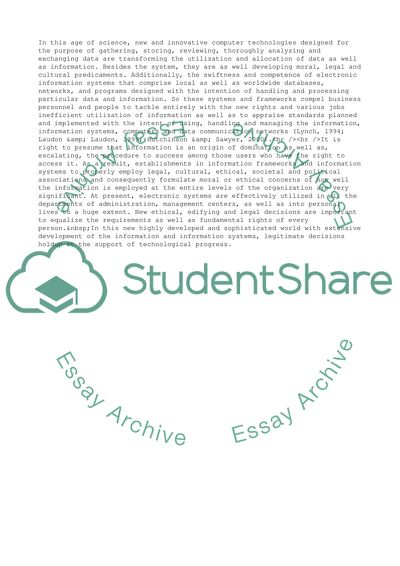Cite this document
(Legal, Cultural and Moral Problems of Management Information System Research Paper, n.d.)
Legal, Cultural and Moral Problems of Management Information System Research Paper. Retrieved from https://studentshare.org/management/1743471-management-information-system
Legal, Cultural and Moral Problems of Management Information System Research Paper. Retrieved from https://studentshare.org/management/1743471-management-information-system
(Legal, Cultural and Moral Problems of Management Information System Research Paper)
Legal, Cultural and Moral Problems of Management Information System Research Paper. https://studentshare.org/management/1743471-management-information-system.
Legal, Cultural and Moral Problems of Management Information System Research Paper. https://studentshare.org/management/1743471-management-information-system.
“Legal, Cultural and Moral Problems of Management Information System Research Paper”. https://studentshare.org/management/1743471-management-information-system.


